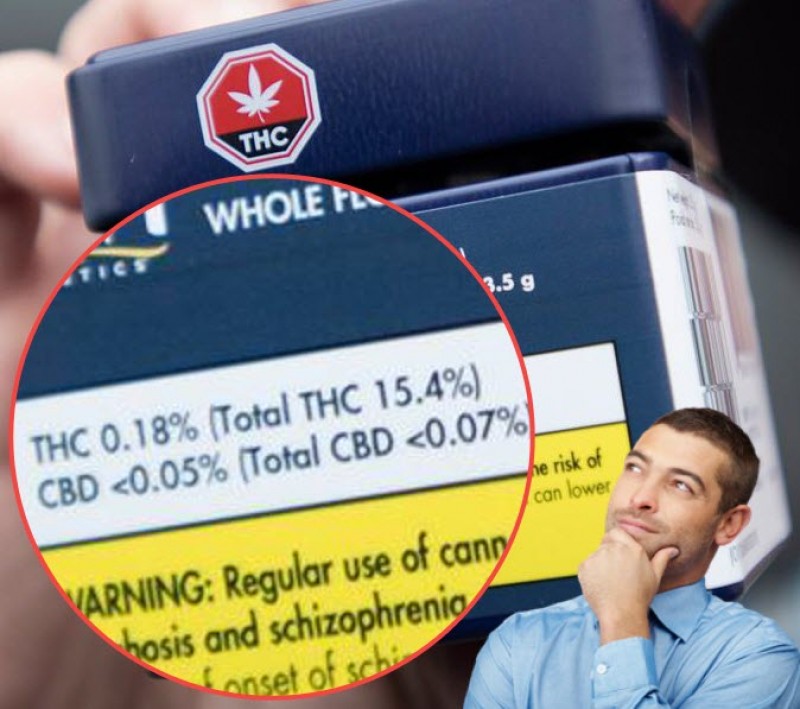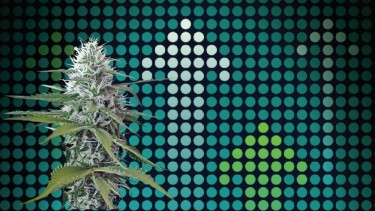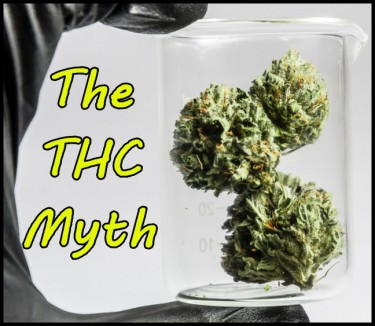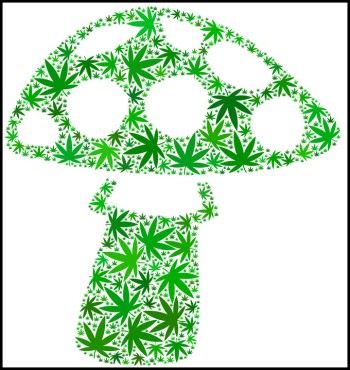Stronger Weed Doesn’t Lead to Higher Levels of Intoxication
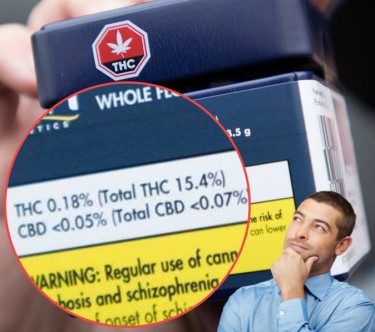
When it comes to weed potency, most people would probably agree the stronger the weed, or higher the THC content, the stronger the ‘high.’ It’s something most of us have grown up believing. But according to a group of scientists from the University of Colorado in Boulder, that might not be the case.
In a study published in the journal JAMA Psychiatry, the team found that consuming high-THC marijuana flower or concentrates did not necessarily lead to greater levels of intoxication. The study affirms a growing body of evidence that suggests that proposed roadside THC tests may be ineffective in testing for marijuana-related driving impairment.
The researchers used mobile labs dubbed ‘cannavans’ to assess 121 regular cannabis users after smoking either a THC concentrate or marijuana flower. The THC concentrate users had to compare 70 percent and 90 percent THC products, while the flower smokers consumed product containing either 16 or 24 percent THC.
Blood was taken from the subjects at three points during the experiment: before consumption, immediately after consumption, and one hour after consumption. All subjects also had to self-observe and report intoxication levels and cognitive function and balance tests were conducted at all three time points.
Cinnamon Bidwell, lead author on the study, said that the team was surprised with the results. “We found that potency did not track with intoxication levels. While we saw striking differences in blood levels between the two groups, they were similarly impaired,” Bidwell said.
The results showed that the subjects who consumed highly potent cannabis concentrates registered significantly high THC blood levels in the minutes after consumption, averaging at around 455 micrograms per milliliter, roughly 1,000 micrograms per milliliter on average more than the subjects who smoked marijuana flower. Despite this, all subjects reported similar feelings of intoxication and achieved similar results when tested for balance and cognitive function, regardless of which type of cannabis they consumed or how high the product’s THC percentage was.
Ken Hutchinson, a co-author on the study, explained, “People in the high concentration group were much less compromised than we thought they were going to be. If we gave people that high a concentration of alcohol it would have been a different story.”
Unlike blood alcohol levels, which are easily measured by a breathalyzer, the discordancy between THC blood levels and actual impairment could render roadside tests ineffective. With alcohol, the more of it that’s consumed, the higher a person’s blood alcohol levels are and the more intoxicated they become. THC doesn’t play by the same rules. Researchers believe that this could be due to two factors.
First, people’s differing tolerance levels for THC. However, it doesn’t explain it entirely. Researchers also suggested that saturation points for cannabinoid receptors may play a part. If a cannabinoid receptor has reached its THC saturation point, any additional THC consumed beyond it would be rendered ineffective, as in the law of diminishing returns.
According to the study, a loss of balance was the most consistent short-term sign of performance impairment across all subjects. An 11 percent increase in sway during an eyes-closed balance test was observed right after subjects’ consumed the cannabis products. Balance returned to normal after the one-hour follow up suggesting this kind of balance test may be a more effective way to measure cannabis intoxication, similar to sobriety tests currently used to identify alcohol-impaired drivers, rather than assigning an arbitrary THC limit, which would have no bearing on a driver’s level of impairment.
In Canada, current regulations stipulate that driving with a THC blood level of between two and five nanograms of THC per milliliter of blood would be a finable offense, and over five nanograms an indictable offense. Colorado also has a similar threshold. This study could help disprove what authorities believe about blood THC levels.
It could also dampen the efforts of several companies who have been working on developing a breathalyzer to test for THC blood levels. One such company is Hound Labs. The company has already been conducting trials on a breathalyzer they claim can detect as little as one trillionth of a gram per liter of breath. Another is ACS Sensors, which developed a machine that uses tiny carbon nanotubes to track THC molecules in breath samples.
While more research still needs to be done, this study has provided a breakthrough in the way we understand how our bodies process THC. It will undoubtedly have a huge impact on drug testing going forward.
Hutchinson, the study’s co-author, also believes that future research should address what long-term effects high-THC concentrates have on regular users. He said, “Does long-term, concentrated exposure mess with your cannabinoid receptors in a way that could have long-term repercussions? Does it make it harder to quit when you want to? We just don’t know yet.”
HIGHER THC OR NO? READ MORE...
CANNABIS PRODUCTS ARE SPIKING IN STRENGTH, NOW WHAT?
OR..
THE MYTH OF HIGHER THC %, MARKETING PLOY OR REAL DEAL?
